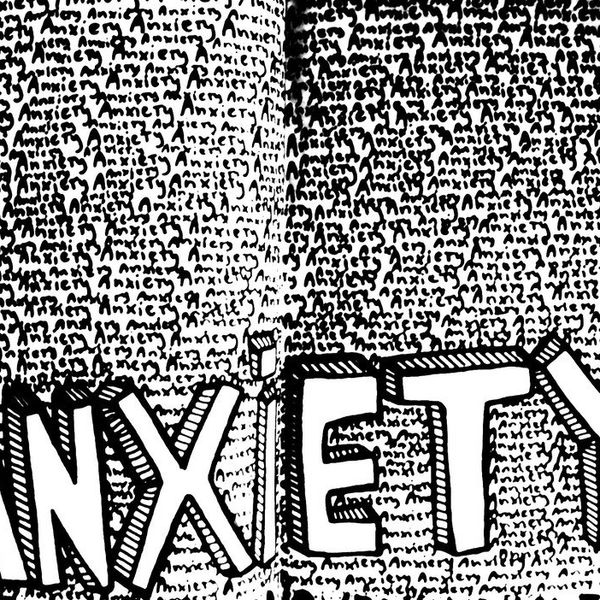Ever heard of cognitive dissonance? According to persuasion theorist Leon Festinger, cognitive dissonance is a distressing mental state that is caused by an inconsistency between two beliefs or inconsistency between an action and a belief.
Festinger claims that the need to avoid dissonance is a basic need just as vital as our need for shelter, safety, or food. There are levels of dissonance that we accept: many law-abiding citizens go 5 over the speed limit with emotional impunity because they don't consider speeding to be a discrepancy between their self-concept as a law-abiding citizen. But that same person would (…hopefully) experience great dissonance if they accidentally killed someone and then hid the body.
But why do us non-theorists care about cognitive dissonance theory?
Because—whether you know about dissonance theory or not—it impacts your everyday life in minor ways (such as lowkey sexism, racism, and ignorance) and in literally life-altering ways: scholars of the Enneagram personality typology believe we each have aspects about our personality that bother us so much that we gleefully sweep these issues under the rug rather than address them. Then we carry around the dirt of dissonance all our lives.
We humans are so motivated to avoid dissonance that if we feel we can't resolve it, we will literally hide the source of dissonance from our own selves. Imagine the emotional difficulty this causes you when your source of dissonance is you.
"In the absence of dissonance, dimension(s) of identity escapes conscious attention," says Beverly Daniel Tatum of, "The Complexity of Identity." When we hide from our internal dissonance, we are blind to entire dimensions of our identity or actions. Unfortunately for our egos, our friends are not. No matter how successfully you hide your flaws from yourself, your friends or loved ones will likely still see them.
Selective exposure shows us that we avoid information that will encourage dissonance. Sounds harmless, but not until you realize this means people will deliberately choose to be with people who are similar to them and seek after sources of information that are consistent with their current beliefs.
Does this ring warning bells of how racism, sexism, white privilege, rape culture, discrimination, and other negative societal concepts continue to exist? It should. Selective exposure means if you think all Mexicans coming over the border are murderers and rapists, or all gun ownership should be heavily regulated, or universal healthcare is a right, you're unlikely to entertain information or friends that would suggest the contrary.

But our most painful sense of dissonance comes from inconsistencies in the way we perceive our own selves. Smeagol has little compunction over lying in the Lord of the Rings because he is a liar and doesn't have a problem with it: it's consistent with his self-concept. If Sam, however, lied to Frodo, he would likely experience dissonance: he values a relationship built on trust and honesty with Frodo. Lying to Frodo would not be aligned with Sam's concept of self.
If we go to such lengths to hide dissonance from ourselves, how can we even begin to discover where our actions or beliefs are dissonant with our concept of self since we've taken such efforts to hide them? Fear not! Remember, it is only in the absence of dissonance that our flaws are hidden from us. For the courageous few who are willing to endure or even embrace the discomfort that will come when facing dissonance, there are several lenses we can use with which to see our own lives' blindspots.
The first is easy. Spend time with people who are unlike you—who come from different backgrounds, adhere to different religions or philosophies, and live their lives in dissimilar ways. Finding out where you disagree with others, and why, provides the opportunity to reexamine your own beliefs.
When you come across information in media and books that you disagree with or wish to dismiss, examine why. Your desire to dismiss something (a critique, a piece of information, a person) is the first clue that this might be a situation that would cause dissonance for you. If it does cause dissonance, it's showing you there's a discrepancy between your beliefs or between a belief and an action.
Development of acceptance of dissonance is coupled with the understanding that strong self-esteem—a sense of acceptance about one's self, both flaws and strengths, and a sense of consistent pursuance in bettering oneself—is a high source of dissonance reduction. If a friend criticizes me on my taste in literature, telling me the novels I enjoy are shoddy, I would probably be taken aback, but this critique won't faze me. I'm proud of my taste in literature—my self-esteem is strong, accepting, and confident, so the level of dissonance the criticism would cause is minimal.
If, however, a friend criticizes me by saying I have shoddy taste in lovers, it would affect me more. I do sometimes choose romantic interests poorly, but I care very much about wanting to make better choices, so this sort of criticism hits close to home on an area in which I'm not as strong.
It is the concepts that are closest, or most dear, to our self-identity, that we defend most zealously. If we have high self-esteem, then we less strongly feel the need to defend ourselves. If I have strong self-esteem and see myself as being beautiful and confident, if a random guy at a bar tells me I'm hideous, it will probably be an uncomfortable interaction but not one that will alter my self-concept.
However, self-esteem isn't always a good thing. Sometimes we use positive thoughts as a shield to block out the conflicting information that urges a change of action to restore consistency. Positive thoughts are important—but burying our head in the sand is not helpful. The only way to ultimately resolve dissonance is to accept that experiencing and working through it will cause discomfort and even pain.
Dissonance is extremely uncomfortable, and all us humans are incredibly motivated to remove all sources of dissonance. But the only true way to resolve dissonance is to accept it and address it. If Pinocchio lies and lies, no amount of covering his ears and closing his eyes and declaring he really is honest is going to change the fact that his nose keeps growing.
If you really are sometimes selfish, or sometimes sexist, or sometimes manipulative, no amount of pretending you aren't is going to change that the behavior or mindset is still a part of you. Only by taking a deep breath, and embracing the painful self-awareness and commitment to growth that dissolves dissonance, can we truly become the person we want to be—without sweeping all the dirt of dissonance under the rug.



















